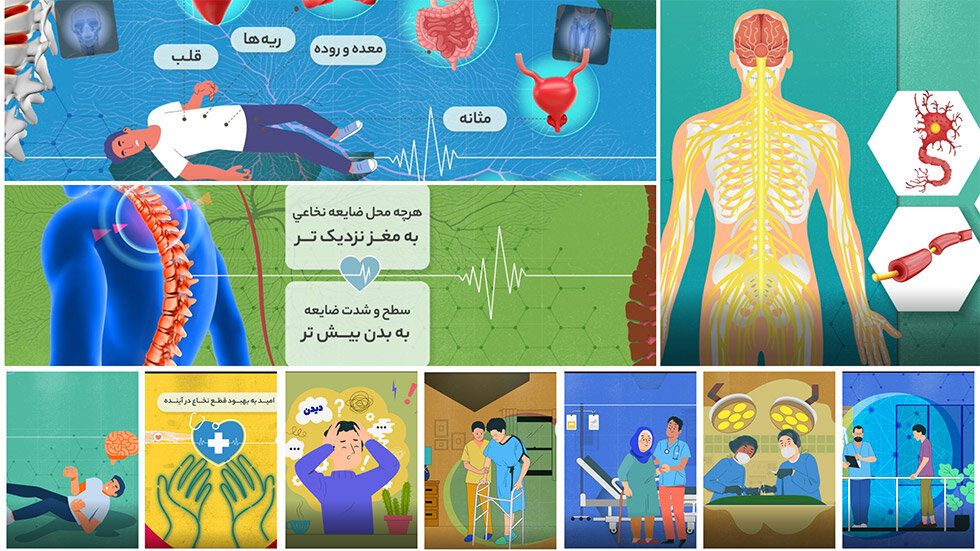Self-care training packages provided for vulnerable people

TEHRAN– A series of specialized self-care training packages have been designed for two vulnerable groups including people with sensory impairments as well as their caregivers, and those with cerebrospinal injuries.
The Ministry of Health and Medical Education devised the series in collaboration with the World Health Organization (WHO), the Tehran University of Medical Sciences (TUMS), the State Welfare Organization of Iran, and various nongovernmental organizations (NGOs), WHO website announced in a press release on January 25.
People with sensory impairments
The package for individuals with blindness, vision impairment, deafness, and hearing loss has 2 parts. The first part is for the individual with the disability and the second is for the caregiver.
The overarching goal is to empower both individuals with disabilities and their caregivers, elevating their overall well-being and quality of life.
Vision and hearing impairments can have profound and far-reaching effects. Globally, over 2.2 billion people have near or distance vision impairment – at least 1 billion cases of which could have been prevented or yet to be addressed.
Projections indicate that by 2050, almost 2.5 billion people worldwide will have some level of hearing loss. At least 700 million of this number will need hearing rehabilitation.
Challenges faced by adults with blindness and vision impairment include lower employment rates and higher rates of depression and anxiety. Communication barriers often lead to social isolation, loneliness, and frustration.
The self-care training packages aim to address such issues by giving people with blindness, vision impairment, deafness, and hearing loss, along with their caregivers, essential life skills and coping mechanisms to better manage the unique challenges they encounter.
This initiative aligns with the Ministry of Health and Medical Education’s commitment to foster inclusivity and ensure that every individual, regardless of ability, has the tools to lead a fulfilling life.
The collaboration with WHO, TUMS, and NGOs reflects a shared effort to make a positive impact on the lives of those with sensory impairments and their support networks.
People with cerebrospinal injuries
The self-care training package has been launched to empower people with cerebrospinal injuries by giving them tools and resources to foster independence and reduce reliance on caregivers or health professionals.
Globally, an alarming 250,000 to 500,000 cerebrospinal injuries attributed to road traffic accidents, falls and violence occur each year.
Cerebrospinal injuries can result in severe and lasting effects, including physical disabilities, cognitive impairments, and emotional/psychological challenges. The self-care training package thus responds to a critical need.
People with cerebrospinal injuries often grapple with social isolation and barriers to their full participation in society.
This initiative recognizes the importance of social care and support to help affected individuals reintegrate into their communities, take part in meaningful activities, and maintain vital social connections. In doing so, the initiative champions inclusivity and equality in society.
The package has 3 parts. The first section, “Understanding and managing cerebrospinal injuries” gives users essential knowledge about these injuries, their associated risk factors, and effective strategies to overcome challenges, all with a focus on promoting individual independence.
The second section, “Assistive technology integration”, introduces users to assistive technology and provides guidance on its effective use to enhance the overall quality of life.
The final section on “Communication skills development” empowers users with tools to navigate challenges and strengthen their ability to connect with others.
“This collaboration exemplifies our commitment to enhance the lives of individuals with cerebrospinal injuries by fostering independence, and to create a more inclusive society,” said Syed Jaffar Hussain, WHO Representative and Head of Mission to the Islamic Republic of Iran.
“WHO is proud to have joined forces to develop this groundbreaking resource that will empower vulnerable individuals with cerebrospinal injuries, especially in the most deprived areas of the country,” he added.
Leave a Comment